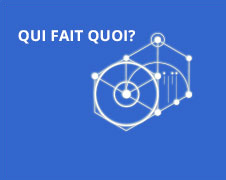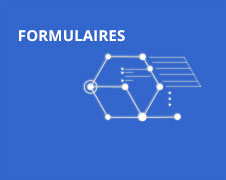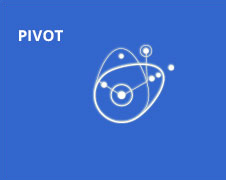Sciences de la santé
Marina Martinez
Réadaptation de la marche après des lésions médullaires
- Professeure sous octroi agrégé
-
Faculté de médecine - Département de neurosciences
Pavillon Paul-G.-Desmarais, local 2135
Autres numéros :
514 343-7046
(Travail 1)
514 343-6111 #4359
(Laboratoire)
Autre courriel :
marina.martinez@umontreal.ca
(Travail)
Portrait
Expertise de recherche
Mécanismes de récupération de la marche dans des modèles animaux d’atteinte médullaire :
- Lésions de la moelle épinière
- Neuroplasticité
- Système moteur
- Récupération fonctionnelle
- Réhabilitation
- Neuroprothèses
- Modèles animaux
Prix et distinctions
- Chercheur-boursier Junior 1 FRQS
- Chercheur-boursier Junior 2 FRQS
- Lauréate du prix Etoiles Effervescence 2022
Affiliations et responsabilités
Affiliations de recherche
Titres professionnels et autres affiliations
Titres : corporations et organismes professionnels
Co-fondatrice et directrice scientifique de NeuralDrive: https://www.neuraldrive.ca/
Enseignement et encadrement
Enseignement
Cours siglés (session en cours uniquement)
Programmes
- 148410 – Baccalauréat en sciences biomédicales
- 153010 – Baccalauréat en neurosciences
- 223510 – Maîtrise en sciences biologiques
- 248410 – Maîtrise en sciences biomédicales
- 248510 – Maîtrise en sciences cliniques
- 253011 – Maîtrise en neurosciences
- 253011 – Maîtrise en neurosciences
- 253060 – Microprogramme de 2e cycle en neurosciences
- 323510 – Doctorat en sciences biologiques
Encadrement
Postdoctorants
- Isley DE JESUS (depuis 2021)
- Marco BONIZZATO (2017-2022)
- David BERGERON (2021-2022)
- Andrew BROWN (2016-2019)
- Maxime DELCOUR (2017-2019)
Thèses et mémoires dirigés (dépôt institutionnel Papyrus)
2024
La combinaison de la stimulation corticale et spinale maximise l'amélioration de la marche après une lésion médullaire
Diplômé(e) : Drainville, Roxanne
Cycle : Maîtrise
Diplôme obtenu : M. Sc.
Cycle : Maîtrise
Diplôme obtenu : M. Sc.
2022
Une neuroprothèse de stimulation bi-corticale pour le contrôle locomoteur chez le chat intact et suivant une contusion spinale thoracique
Diplômé(e) : Duguay, Maude
Cycle : Maîtrise
Diplôme obtenu : M. Sc.
Cycle : Maîtrise
Diplôme obtenu : M. Sc.
2021
Caractérisation comportementale, électrophysiologique et histologique d’un modèle animal de traumatisme spinal et cérébral concomitant
Diplômé(e) : Regniez, Morgane
Cycle : Doctorat
Diplôme obtenu : Ph. D.
Cycle : Doctorat
Diplôme obtenu : Ph. D.
Thèses et mémoires dirigés
- Anne-Catherine CHOUINARD (Depuis 2021)
- Roxanne DRAINVILLE (2021-2023)
- Morgane REGNIEZ (2018-2021)
- Maude DUGUAY (2019-2021)
Stages et autres supervisions
Stagiaires de 1er cycle:
- Stéphanie LANGHEIT (2017)
- Simon-Olivier CLOUTIER (2017)
- Simon GUICHANDUT (2018)
- Rose GUAY-HOTTIN (2018-2019)
- Maude DUGUAY (2018)
- Juliette MILNER (2018)
- Emilie DELAGE (2018-2019)
- Joey ST-ARNAULT (2019)
- Véronique CHOUINARD (2019)
- Catherine LANDRY (2019)
- Catherine HENRY (2019)
- Shana THEODORE (2019)
- Hind TOURI (2020)
- Victorine ARTOT (2020)
- Gaëlle FOREST ST-ONGE (2020)
- Alexandre SHEASBY (2020-2021)
- Roxanne DRAINVILLE (2020-2021)
- Valérie DAIGNEAULT (2020-2021)
- Samuel BOYER (2020-2021)
- Charlie LEPITRE (2021)
- Rania LEJRI (2021)
- Medhi JAWAD (2021)
- Anne-Catherine CHOUINARD (2021)
- Rania LEJRI (2021)
- Léa BRODEUR (2022)
- Sophie BROSSARD (2022)
- Emmanuelle GAGNON (2022)
- Luis Alejandro GOMEZ ROJAS (2022)
- Anne GIROUX (2023)
- Ariane EVENAT-DAUPHINAIS (2023)
Projets
Projets de recherche
2025
- 2031
Sensorimotor interactions involved in locomotor control and plasticity
Chercheur principal :
Marina Martinez
Sources de financement :
CRSNG/Conseil de recherches en sciences naturelles et génie du Canada (CRSNG)
Programmes de subvention :
PVX20965-(RGP) Programme de subvention à la découverte individuelle ou de groupe
2025
- 2029
Stratégies de neurostimulation ciblées pour restaurer la locomotion après une lésion spinale incomplète
Chercheur principal :
Marina Martinez
Sources de financement :
FRQS/Fonds de recherche du Québec - Santé (FRSQ)
Programmes de subvention :
PVXXXXXX-Bourse de chercheur-boursier : Senior
2021
- 2028
Corticospinal mechanisms of locomotor recovery after spinal cord injury
Chercheur principal :
Marina Martinez
Sources de financement :
IRSC/Instituts de recherche en santé du Canada
Programmes de subvention :
PVXXXXXX-(PJT) Subvention Projet
2025
- 2027
Shared histology equipment: cryostat
Chercheur principal :
Réjean Dubuc
Sources de financement :
CRSNG/Conseil de recherches en sciences naturelles et génie du Canada (CRSNG)
Programmes de subvention :
PVXXXXXX-(OIR) Outils et d'instruments de recherche (de 7 001 $ à 150 000 $)
2025
- 2026
Spinal stimulation with gait training to improve lower limbs motor recovery in spinal cord injury
Chercheur principal :
Dorothy Barthélemy
Sources de financement :
MITACS Inc.
Programmes de subvention :
PVXXXXXX-Stage Accélération Québec - MITACS
2024
- 2026
Distributed neurostimulation to restore walking after spinal cord injury
Chercheur principal :
Marina Martinez
Sources de financement :
The Morton Cure Paralysis Fund
Programmes de subvention :
2022
- 2026
Corticospinal mechanisms of locomotor recovery after spinal cord injury
Co-chercheurs :
Marina Martinez
Sources de financement :
IRSC/Instituts de recherche en santé du Canada
Programmes de subvention :
PVXXXXXX-(PJT) Subvention Projet
2021
- 2026
Corticospinal mechanisms of locomotor recovery after spinal cord injury
Chercheur principal :
Marina Martinez
Sources de financement :
IRSC/Instituts de recherche en santé du Canada
Programmes de subvention :
PVXXXXXX-(PJT) Subvention Projet
2016
- 2026
Mechanisms of locomotor plasticity after partial section of the spinal cord: role of neural activity
Chercheur principal :
Marina Martinez
Sources de financement :
CRSNG/Conseil de recherches en sciences naturelles et génie du Canada (CRSNG)
Programmes de subvention :
PVX20965-(RGP) Programme de subvention à la découverte individuelle ou de groupe
2022
- 2025
Cibler le cortex moteur pour restaurer la locomotion après une lésion spinale incomplète
Chercheur principal :
Marina Martinez
Sources de financement :
FRQS/Fonds de recherche du Québec - Santé (FRSQ)
Programmes de subvention :
PVXXXXXX-Bourse de chercheur-boursier : Junior 2
2016
- 2025
Compensatory role of the motor cortex in the recovery of locomotion after spinal injury
Co-chercheurs :
Marina Martinez
Sources de financement :
IRSC/Instituts de recherche en santé du Canada
Programmes de subvention :
PVXX5647-(MOP) Subvention de fonctionnement incluant les subventions de fonctionnement programmatiques (général)
2024
TransMedTech : Bourse 1er cycle transmedtech: Développement d'une neuroprothèse de stimulation coticale et périphérique pour restaurer la marche
Chercheur principal :
Carl-Éric Aubin
Co-chercheurs :
Marina Martinez
Sources de financement :
FRQNT/Fonds de recherche du Québec - Nature et technologies (FQRNT)
Programmes de subvention :
PVXXXXXX-Grands défis de société
2022
- 2024
Neurostimulation corticospinale chez le rat pour restaurer le contrôle moteur du bras, de la main et de la jambe_2020-2024-PSOv2d-54829
Chercheur principal :
Marina Martinez
Co-chercheurs :
Marco Bonizzato
Sources de financement :
NeuralDrive
Programmes de subvention :
2022
- 2024
Neurostimulation corticospinale chez le rat pour restaurer le contrôle moteur du bras, de la main et de la jambe_2020-2024-PSOv2d-54829
Sources de financement :
Ministère Économie et Innovation
Programmes de subvention :
PVXXXXXX-Soutien aux organismes de recherche et innovation (PSO) - Volet 2: Soutien aux projets
2020
- 2024
Chaire Transmedtech - Cortical neuroprostheses for reversing paralysis: proof of concept in large animal models
Sources de financement :
SPIIE/Secrétariat des programmes interorganismes à l’intention des établissements
Programmes de subvention :
PVXXXXXX-Fonds d'excellence en recherche Apogée Canada/Projet de recherche
2023
Étude de la période optimale pour débuter une thérapie de neurostimulation corticale chez le rat blessé médullaire (Joumana Miriam)
Chercheur principal :
Carl-Éric Aubin
Co-chercheurs :
Marina Martinez
Sources de financement :
SPIIE/Secrétariat des programmes interorganismes à l’intention des établissements
Programmes de subvention :
PVXXXXXX-Fonds d'excellence en recherche Apogée Canada/Bourse
2020
- 2023
Cortical neuroprostheses for reversing paralysis: proof of concept in large animal models.
Chercheur principal :
Marina Martinez
Sources de financement :
The Morton Cure Paralysis Fund
Programmes de subvention :
2019
- 2023
Bourse d’excellence de niveau doctoral - Elena Massai / Développement de neuroprothèses pour le contrôle locomoteur auprès des traumatismes médullaires chez le rat
Chercheur principal :
Carl-Éric Aubin
Co-chercheurs :
Marina Martinez
Sources de financement :
SPIIE/Secrétariat des programmes interorganismes à l’intention des établissements
Programmes de subvention :
PVXXXXXX-Fonds d'excellence en recherche Apogée Canada/Bourse
2021
- 2022
A collaborative platform for neuroprosthetic innovation in sensorimotor rehabilitation
Chercheur principal :
Marina Martinez
Co-chercheurs :
Cyril Duclos
,
Dorothy Barthélemy
,
Emmanuel Charbonney
,
Jean Fleury
,
Marie-Pierre Fournier-Gosselin
,
Andréane Richard-Denis
Sources de financement :
Praxis Spinal Cord Institute
Programmes de subvention :
2021
- 2022
NeuralDrive: Intelligent cortical stimulation device fostering recovery of movement after spinal cord injury
Chercheur principal :
Marina Martinez
Sources de financement :
SPIIE/Secrétariat des programmes interorganismes à l’intention des établissements
Programmes de subvention :
PVXXXXXX-Fonds d'excellence en recherche Apogée Canada/Bourse
2018
- 2022
Intracortical neuroprosthesis to foster motor recovery after SCI
Chercheur principal :
Marina Martinez
Sources de financement :
Craig H. Neilsen Foundation
Programmes de subvention :
2018
- 2022
Une interface cerveau-machine adaptative pour le contrôle neuromusculaire
Chercheur principal :
Numa Dancause
Sources de financement :
FRQNT/Fonds de recherche du Québec - Nature et technologies (FQRNT)
Programmes de subvention :
PV113724-(PR) Projets de recherche en équipe (et possibilité d'équipement la première année)
2021
Pre-clinical validation of a surface cortical stimulation neuroprosthesis to reverse paralysis after spinal cord injury - (post-doc Marco Bonizzato)
Chercheur principal :
Marina Martinez
Sources de financement :
The Morton Cure Paralysis Fund
Programmes de subvention :
2020
- 2021
Supplément COVID-19 CRSNG_Mechanisms of locomotor plasticity after partial section of the spinal cord: role of neural activity
Chercheur principal :
Marina Martinez
Sources de financement :
CRSNG/Conseil de recherches en sciences naturelles et génie du Canada (CRSNG)
Programmes de subvention :
PVXXXXXX-Supplément à l’appui des étudiants, des stagiaires postdoctoraux et du personnel de soutien à la recherche COVID-19
2016
- 2021
Mécanismes de récupération de la marche dans des modèles animaux d'atteinte médullaire: rôle du système corticospinal
Chercheur principal :
Marina Martinez
Sources de financement :
FRQS/Fonds de recherche du Québec - Santé (FRSQ)
Programmes de subvention :
PVXXXXXX-Établissement de jeunes chercheurs Juniors 1
2016
- 2021
Mécanismes de récupération de la marche après des lésions spinales
Chercheur principal :
Marina Martinez
Sources de financement :
FCI/Fondation canadienne pour l'innovation
Programmes de subvention :
PVXXXXXX-Fonds d'exploitation des infrastructures (FEI)
2016
- 2021
Mécanismes de récupération de la marche dans des modèles animaux d'atteinte médullaire: rôle du système corticospinal
Chercheur principal :
Marina Martinez
Sources de financement :
FRQS/Fonds de recherche du Québec - Santé (FRSQ)
Programmes de subvention :
PVXXXXXX-Bourse de chercheur-boursier : Junior 1
2020
Analyse multivariée de la cinématique pour créer un lien entre les mouvements comportementaux observées et ceux générés par neurostimulation corticale
Chercheur principal :
Marina Martinez
Sources de financement :
SPIIE/Secrétariat des programmes interorganismes à l’intention des établissements
Programmes de subvention :
PVXXXXXX-Fonds d'excellence en recherche Apogée Canada/Bourse
2020
Combiner les effets de la stimulation corticale et spinale pour améliorer la marche après une lésion médullaire
Chercheur principal :
Marina Martinez
Sources de financement :
SPIIE/Secrétariat des programmes interorganismes à l’intention des établissements
Programmes de subvention :
PVXXXXXX-Fonds d'excellence en recherche Apogée Canada/Bourse
2016
- 2020
Compensatory role of the motor cortex in the recovery of locomotion after spinal cord injury
Chercheur principal :
Marina Martinez
Sources de financement :
IRSC/Instituts de recherche en santé du Canada
Programmes de subvention :
PVXX5647-(MOP) Subvention de fonctionnement incluant les subventions de fonctionnement programmatiques (général)
2015
- 2020
Mechanisms of locomotor recovery after spinal cord injury
Chercheur principal :
Marina Martinez
Sources de financement :
FCI/Fondation canadienne pour l'innovation
Programmes de subvention :
PVXXXXXX-Fonds des leaders
2019
Un agent d'apprentissage pour une neuroprothèse cortico-spinale
Chercheur principal :
Marina Martinez
Sources de financement :
SPIIE/Secrétariat des programmes interorganismes à l’intention des établissements
Programmes de subvention :
PVXXXXXX-Fonds d'excellence en recherche Apogée Canada/Bourse
2017
- 2019
A transcranial magnetic stimulation setup for animal research
Chercheur principal :
Numa Dancause
Sources de financement :
CRSNG/Conseil de recherches en sciences naturelles et génie du Canada (CRSNG)
Programmes de subvention :
PVXXXXXX-(OIR) Outils et d'instruments de recherche (de 7 001 $ à 150 000 $)
2018
Programme de bourse d'été et d'initiation à la recherche au premier cycle IVADO. Candidat: Juliette Milner / Optimisation multivariée d'une neuroprothèse corticale pour le contrôle moteur
Chercheur principal :
Marina Martinez
Sources de financement :
SPIIE/Secrétariat des programmes interorganismes à l’intention des établissements
Programmes de subvention :
PVXXXXXX-Fonds d'excellence en recherche Apogée Canada/Bourse
2018
Programme de bourse d'été et d'initiation à la recherche au premier cycle IVADO. Candidat: Simon Guichandut / Cortical control of motor recovery: a dynamical systems perspective
Chercheur principal :
Marina Martinez
Sources de financement :
SPIIE/Secrétariat des programmes interorganismes à l’intention des établissements
Programmes de subvention :
PVXXXXXX-Fonds d'excellence en recherche Apogée Canada/Bourse
2016
- 2018
Fonds d'installation du centre de recherche
Chercheur principal :
Marina Martinez
Sources de financement :
Hôpital Sacré-Coeur de Montréal
Programmes de subvention :
Rayonnement
Publications et communications
Publications
Publications choisies
- Duguay M, Bonizzato M, Delivet-Mongrain H, Fortier-Lebel N, Martinez M. Uncovering and leveraging the return of voluntary motor programs after paralysis using a bi-cortical neuroprosthesis. Prog Neurobiol 2023 Jul 5;228:102492.
- Bonizzato M, Guay Hottin R&, Côté S.L&, Massai E&, Choinière L, Macar U, Laferrière S, Sirpal P, Quessy S, Lajoie G#, Martinez M#, Dancause N. Autonomous optimization of neuroprosthetic stimulation parameters that drive the motor cortex and spinal cord outputs in rats and monkeys. Cell Reports Medicine 2023, & and # Equal contribution. https://doi.org/10.1016/j.xcrm.2023.101008
- Martinez M. Targeting the motor cortex to restore locomotion after incomplete spinal cord injury. Neural Regeneration Research, 2022, 17(7):1489-1490. DOI: 10.4103/1673-5374.330603
- Brown A and Martinez M (2021). Chronic inactivation of the contralesional hindlimb motor cortex after thoracic spinal cord hemisection impedes spontaneous locomotor recovery in the rat. Experimental Neurology 343 (113775). https://doi.org/10.1016/j.expneurol.2021.113775
- Bonizzato M and Martinez M. An intracortical neuroprosthesis immediately alleviates walking deficits and improves recovery of leg control after spinal cord injury. Science Translational Medicine 13(586):eabb4422, DOI: 10.1126/scitranslmed.abb4422
- Brown A and Martinez M. From cortex to cord: motor circuit plasticity after spinal cord injury. Neural Regeneration Research, 2019 14(12):2054-2062.
- Brown A and Martinez M. Thoracic spinal cord hemisection surgery and open-field locomotor assessment in the rat. Journal of Visualized Experiments 2019, (148), e59738, doi:10.3791/59738.
- Brown A and Martinez M. Ipsilesional motor cortex plasticity participates in spontaneous hindlimb recovery after unilateral spinal cord injury. J Neurosi. 2018, 38(46):9977–9988.
- Martinez M, Tuznik M, Delivet-Mongrain H, Rossignol S. Emergence of Deletions during Treadmill Locomotion as a Function of Supraspinal and Sensory Inputs. J. Neurosc. 2013, 33:11599-605;
- Martinez M, Delivet-Mongrain H, Rossignol S. Treadmill training promotes spinal changes leading to locomotor recovery after partial spinal cord injury in cats. J. Neurophysiology. 2013, 109: 2909-22;
- Martinez M and Rossignol S. A dual spinal cord lesion paradigm to study spinal locomotor plasticity in the cat. Annals of the New York Academy of Sciences 2013, 1279:127-34;
- Martinez M, Delivet-Mongrain H, Leblond H, Rossignol S. Effect of locomotor training in completely spinalized cats previously submitted to a spinal hemisection. J. Neurosc. 2012, 32:10961-70;
- Martinez M, Delivet-Mongrain H, Leblond H, Rossignol S. Incomplete spinal cord injury promotes durable functional changes within the spinal locomotor circuitry. J. Neurophysiology. 2012, 108:124-34;
- Martinez M and Rossignol S. Changes in CNS structures after Spinal Cord Lesions: implications for BMI. Progress in Brain Research, Vol 194. Edited by Jens Schouenborg, Martin Garwicz and Nils Danielsen. Prog Brain Res. 2011, 194:191-202;
- Martinez M, Delivet-Mongrain H, Leblond H, Rossignol S. Recovery of hindlimb locomotion after incomplete spinal cord injury in the cat involves spontaneous compensatory changes within the spinal locomotor circuitry. J. Neurophysiology 2011, 106:1969-1984;
- Martinez M, Brezun JM, Xerri C. Sensorimotor experience influences recovery of forelimb abilities but not tissue loss after focal cortical compression in adult rats. PLoS One 2011; 6(2): e16726:
- Martinez M, Delcour M, Russier M, Zennou-Azogui Y, Xerri C, Coq JO, Brezun JM. Differential tactile and motor recovery and cortical map alteration after C4-C5 spinal hemisection. Exp Neurol. 2010, 221:186-197;
- Martinez M, Brezun JM, Zennou-Azogui Y, Baril N, Xerri C. Sensorimotor training promotes functional recovery and somatosensory cortical map reactivation following cervical spinal cord injury. Eur J Neurosci. 2009, 30:2356-67;
- Martinez M, Brezun JM, Bonnier L, Xerri C. A new rating scale for open-field evaluation of behavioural recovery after cervical spinal cord injury in rats. J.Neurotrauma 2009, 26:1043-53.
Communications
- Reportage "Connectés sur l'avenir: Réadapter", diffusé sur AMI-Télé et ICI Explora
- Entrevue avec Québec Sciences : Inventions de l’année 2021: « Neural DRIVE : l’entreprise québécoise qui veut faire marcher les paralysés »
- Entrevue avec la Radio Télévision Suisse, émission CQFD : « Des impulsions électriques au service des paraplégiques »
- Entrevue dans La Presse: "Nouvel espoir pour les lésions de la moelle épinière"
- Entrevue avec Drug Discovery News : "A new neuroprosthetic may revolutionize spinal cord injury treatment"
- Nouvelles de l’université de Montréal : "Marina Martinez : Percer le mystère des traumas médullaires par les neurosciences"
Disciplines
- Neurosciences
Champ d’expertise
- Traumatismes crânio-encéphaliques et de la moelle épinière
- Plasticité / régénération neuronale
- Système moteur
- Animal
Aide en ligne pour votre profil | Nous joindre
Le Répertoire des professeurs est propulsé par les données du ![]() SADVR et est un projet du CENR.
SADVR et est un projet du CENR.


